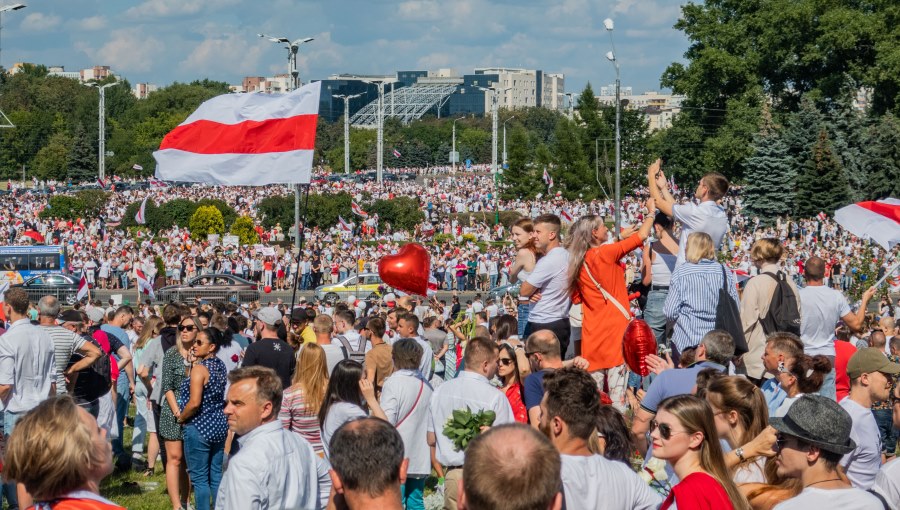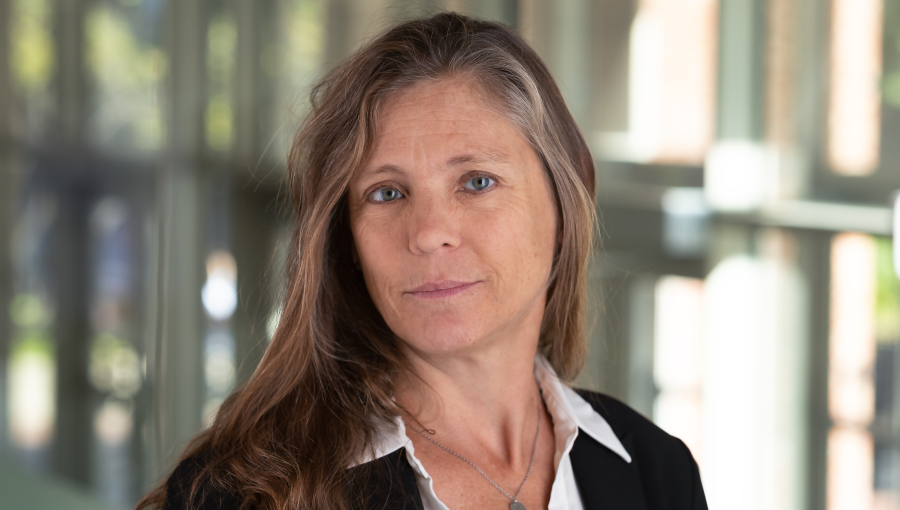Belarus, Italy and the EU: A Guarini Institute Online Round Table Discussion
The Guarini Institute for Public Affairs hosted an online round table discussion called “La crisi bielorussa, l’UE e l’Italia” (The Belarus Crisis, the EU and Italy) on September 17, 2020. The event was moderated by JCU Political Science Professor Federigo Argentieri (also Director of the Guarini Institute), and saw the participation of Nona Mikhelidze (Head of the Eastern Europe and Eurasia Programme at the Internazional Affairs Institute), Lia Quartapelle (member of the Italian Chamber of Deputies), Gianni Vernetti (former deputy foreign minister and columnist at La Repubblica) and Anna Zafesova (journalist at La Stampa).
Background information
The 2020 Belarusian presidential elections were held on August 9, and the results triggered a wave of protests in the country. President Alexander Lukashenko, who has won every presidential election since 1994, was reelected for a sixth term, with 80 percent of the vote. Allegations of widespread electoral fraud led the European Union and numerous countries, including Canada and the United Kingdom, to question the result of the election. Opposition candidate Sviatlana Tsikhanouskaya claimed to have received at least 70 percent of the vote, and appealed to Western countries to recognize her as the winner. Following the elections, clashes between protesters and police broke out in Minsk. Arrests and violence against protesters, including claims of torture, increased in the week after the election, leading to requests for international sanctions against the perpetrators.
The discussion began with opening remarks by Professor Argentieri, who pointed out that the term “Belarus” means White Rus’, and was used to indicate that part of the Rus’ (the first oriental state) which was not conquered by the Mongols. Professor Argentieri also explained that there are three relevant dates in Belarus’ history: the Berezina Battle in 1812, when Napoleon’s army retreated after the French Invasion of Russia; 1898, when the First Congress of the Russian Social Democratic Labour Party was held in secrecy in Minsk, while it was still under the rule of Imperial Russia; and lastly 1917, when, following the October Revolution, the first elections of the Belarusian National Council took place. In Belarus the Bolsheviks prevailed, whereas in the rest of the Soviet Union Bolshevism was the third party. Belarus declared independence from the Soviet Union on August 25, 1991. Professor Argentieri also explained that during World War II, Belarus held a strong resistance against Nazis. As a way to recognize the role played by the people of Belarus in defeating Nazism, US President Franklin D. Roosevelt and head of the Soviet Union Joseph Stalin conferred upon it the status of founding state of the United Nations, despite Belarus not being an independent state.
Lukashenko’s regime
Nona Mikhelidze explained that even though President Lukashenko was elected democratically in 1994, the following five elections were rigged. She pointed out that manipulation and fraud occurred before and during each Belarusian election that saw the victory of Lukashenko. Over the years, elections were never free, and political dissent was not allowed. According to Mikhelidze, no new political party has been allowed to register in Belarus since 2001, and the opposition has always been denied access to national media. Citizens who wish to express their dissent have to turn to messaging applications like Telegram or internet blogs. According to Mikhelidze, the events that started unfolding on August 9 will bring about a change in Belarusian society and will make the citizens more resilient and willing to fight against the authoritarian government.
Lia Quartapelle said that these events have no precedent in Belarusian history. The protests are very widespread and Lukashenko’s regime is having trouble countering them despite the use of police brutality. These protests are about national pride and repeal of authoritarianism, and could be compared to the ones that led to the demise of the Soviet Union. Quartapelle pointed out that the objective of the protesters is to end a regime tied to Lukashenko’s figure, and believes that what Italy and the E.U. could do is to support the activists.
Belarus and Russia
Gianni Vernetti talked about Lukashenko’s ties to Russian President Vladimir Putin. The Russian government openly supports Lukashenko’s regime. According to Vernetti, “Russia has always considered Belarus as its own backyard.” He believes that the upcoming months will be crucial in determining how far the opposition and its supporters can go while avoiding a Russian military engagement. Regarding the involvement of the Italian Foreign Ministry, Vernetti said that the government has been silent on Belarus.
Anna Zafesova focused her contribution on the role of women. She explained that both Imperial Russia and the Soviet Union had very few women involved in politics, but that they were very active in the opposition. According to Zafesova, one of the reasons why numerous women are at the forefront of the protests in Belarus is to try to avoid violence, but also to show the new face of the opposition. Despite the first three days of the protests (August 9, 10, 11) being very violent, the fact that women joined lowered the brutality.
The ongoing protests in Belarus seek to end Lukashenko’s regime and the political violence that characterizes it. The hopes of the protesters are that Western powers will support the opposition and help guarantee free elections, which might lead the country to become a democracy and have stronger economic ties with the European Union.






